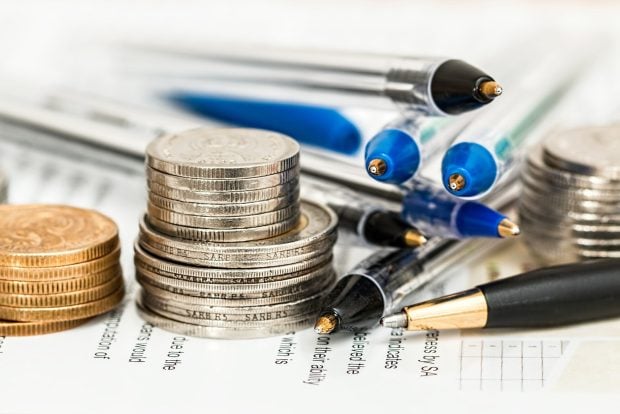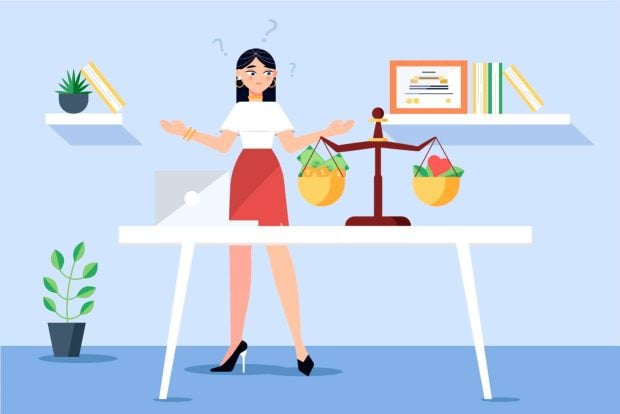OECD report finds support for higher taxes to tackle inequality

More than six out of 10 citizens from OECD countries want their government to tackle the income gap between rich and poor through taxes and wealth transfers, research has found.
Citizens of the 38 member countries have grown increasingly concerned about income inequality as earning disparities in their countries have risen over the last 30 years, according to polling by the multinational organisation. Around 80% feel income disparities in their countries are too wide, and an average of 70% of respondents believe redistribution is the responsibility of government.
However, the proportion declines to around 60% when people are asked if they would specifically support higher taxes and wealth transfers.
The report published by the intergovernmental economic organisation on 18 November highlighted that citizens from across its members were generally in favour of interventions that would reduce current levels of inequality. Most respondents believe their government should do more to reduce income differences between rich and poor by collecting taxes and providing social benefits, and a similar proportion believing governments should tax the rich more than they currently do, according to its analysis of the 2020 Risks that Matter Survey, Demand for such redistributive policies is particularly strong in countries where people perceive that income inequality is high and social mobility low.
The more people worry about inequality and perceive low social mobility, the study added, the more they tend to demand redistribution. “In the recovery after the COVID-19 crisis, gathering public support is key to sustain the momentum for reforms that tackle inequalities and promote equal opportunities,” the report added.
The OECD warned that, despite people’s growing concern about inequality, “public support in favour of inequality-reducing policies cannot be taken for granted”. Research found that citizens’ tolerance for inequality has also increased as, on average, OECD citizens today believe that the highest earners should earn four times as much as the lowest earners, up from three times in the late 1980s.
“Getting citizens and governments on the same page when it comes to policies reducing inequality and promote social mobility requires understanding how people form their perceptions and opinion,” the study said.
Countries polarised on inequality also the most unequal
The study also found increasing polarisation on public opinion on inequality. The gap between those who believe inequality is high and those who believe it has low widening over the last three decades, and countries with more divided public opinion on inequality tended to be more unequal. These include Chile and the United States, two of the most unequal OECD countries.
The causes of inequality and how to rebuild economies in the post-Covid world are also central to people’s disagreements. According to the study’s findings, citizens differ significantly in their estimation of the extent to which inequality is the cause of unfair wealth distribution. While a quarter of citizens in the average OECD country believe that more than 70% of national income goes to the 10% richest households, another quarter thinks this is less than 30%. The latest average estimate from the OECD Income Distribution Database is that the richest 10%’s share of disposable income is actually 25%.
Likewise, the study showed that in the late 1980s and early 1990s, people believed on average that society’s highest earners took home five times as much as the lowest earners. Perceptions today raise that perceived earnings ratio to eight.
The OECD concluded that policymakers are often surprised to find that support for redistributive government has not risen with concerns around economic inequality. In several countries “a sizeable share of people is concerned about income disparities, but does not think that it is the state’s responsibility to tackle them”.
The study said people are generally less likely to demand redistribution if they don’t trust government to make best use of its benefits. They are also less likely to support progressive taxation if they think public officials and institutions are corrupt.
Perspectives of inequality affect support for policy response
The Does Inequality Matter? report urged policymakers to recognise that in addition to income inequality, citizens perceive inequalities passed on from one generation to another, which indicates concerns over inequality of outcome as well as opportunity.
For example, where people believe disparities are justified by differences in personal effort, rather than uncontrollable circumstances, demand for more progressive taxation is lower. In a 2018 review of policies to tackle income inequality, 25% of people in Poland said they believe poverty is due to lack of effort rather than injustice or bad luck, and 54% demand more progressive taxation. In Germany these figures are 4% and 77%, respectively.
Policymakers also face a challenge to dissuade citizens from the view that “policies have only a limited impact on people’s economic conditions”, according to the report, and to get them to trust that redistributive policies can work.
To do this, it recommends that governments use strong, impartial evidence to create “meeting points in the national debate”, even if it does not narrow the divergence of public opinion on policy. “Revealing the profound divide between rich and poor may actually reinforce differences of opinion across the income distribution. Governments should be transparent and clear when communicating empirical evidence to avoid conflict between their, expert, view and people’s views,” it said.






















